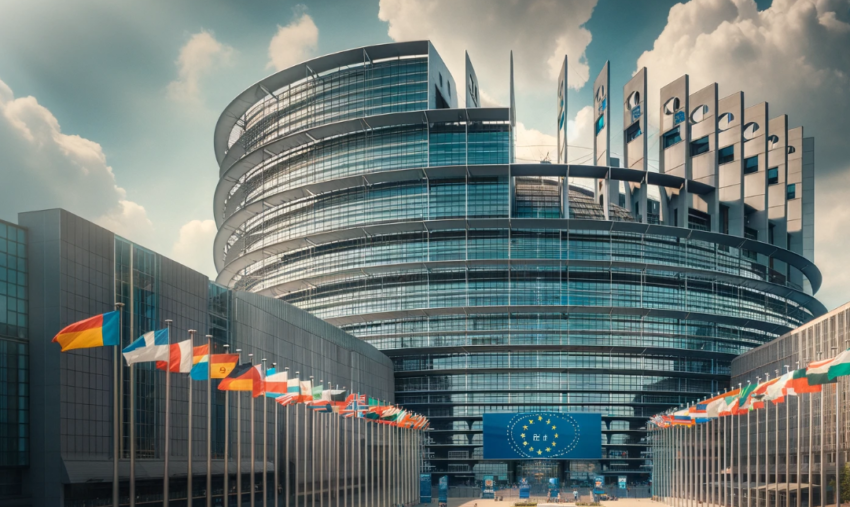| Listen to our audio presentation: Global Nuclear Proliferation |
In the latest round of EU parliamentary elections, Europe witnessed a significant political shuffle, reflecting a continent at a crossroads. While right parties gained ground in several key nations, the rise was offset by strong performances from centrist and left-wing factions in others, painting a complex picture of the European political landscape.
Key Outcomes in Major EU Nations
Austria: In Austria, the Freedom Party (FPOe) led the polls with 25.7% of the votes, narrowly edging out the conservative People’s Party (OeVP). Chancellor Karl Nehammer acknowledged the message from the electorate and expressed a commitment to addressing major concerns such as illegal migration ahead of national elections later this year.
Belgium: Belgium hosted triple elections, with its European Parliament seats being divided among the right Vlaams Belang, the liberal Mouvement Reformateur, and the nationalist New Flemish Alliance, each securing around 13% of the vote.
Denmark: Contrary to the broader European trend, Denmark saw a rise in left-wing politics, with the Socialist People’s Party emerging as the largest party, a significant gain from its previous standing in 2019.
France: France experienced a political earthquake with Marine Le Pen’s National Rally securing about 32% of the vote, prompting President Emmanuel Macron to call snap legislative elections. On the left, the Socialist Party made notable gains, advocating for aggressive climate policies and protectionist measures for European businesses.
Germany: Germany’s center-left faced a setback, with the conservative Christian Democratic Union maintaining its dominance in European affairs. The far-right Alternative for Germany (AfD) also made gains, despite controversies surrounding its candidates.
Hungary: Viktor Orbán’s Fidesz party saw a decline in support, though it still received the most votes. A new opposition, the Respect and Freedom Party, emerged strongly, indicating significant political shifts within the country.
Italy: Prime Minister Giorgia Meloni’s Brothers of Italy party led the polls with about 28% of the vote, marking a consolidation of her party’s influence in both national and European politics.
Netherlands: The far-right party of Geert Wilders was outperformed by a Left-Green alliance, indicating a preference for progressive policies among Dutch voters.
Poland: The ruling Law and Justice party was narrowly defeated by the opposition, signaling a potential shift in the country’s political dynamics, with former EU leader Donald Tusk’s party gaining a slight edge.
Spain: Spain’s conservative People’s Party (PP) edged past the governing socialists, with both parties facing the challenge of a rising far-right under the banner of Vox.
Implications for EU Policy Making
The mixed electoral results across Europe suggest a fragmented political landscape within the European Parliament. This diversity is likely to complicate EU lawmaking, with increased negotiations and coalition-building efforts expected. Key issues such as climate change, migration, and economic policies will be at the forefront of the parliamentary agenda, requiring substantial consensus across the political spectrum.
The rise of populist right-wing parties, although significant, was counterbalanced by resilient support for establishment and progressive groups in several countries. This indicates a divided but dynamic political arena where traditional power blocs may need to realign their strategies to effectively govern.
As Europe stands at a crucial juncture, the outcomes of these elections will play a pivotal role in shaping the future direction of the EU, influencing both domestic and international policies. The new political cycle heralded by these results suggests a period of introspection and possibly, transformation, as the EU navigates through its complex and evolving political landscape.

